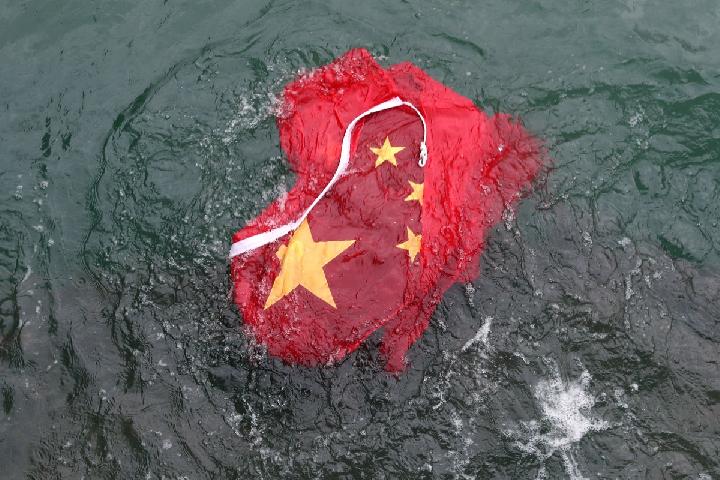Muhammadiyah: Political Elites Should Not Create Hostile Atmosphere
Translator
Editor
13 May 2023 20:30 WIB

TEMPO.CO, Jakarta - THE difference in deciding the date for Idul Fitri—the end of the fasting month—by the government and religious organizations such as Muhammadiyah has occurred several times. However, this year’s process has caused two researchers with the National Innovation and Research Agency (BRIN), Andi Pangerang Hasanuddin and Thomas Jamaludin, to land in legal hot water after Muhammadiyah’s legal counsel team reported them to police for their tweets.
Muhammadiyah General Chair Haedar Nashir said his organization had resorted to the legal action as a lesson (for others) and to prevent similar incidents from happening. He added that he left it entirely up to the law enforcement authorities to determine if tweets contain just criticism or hate speech. The police later named Hasanuddin a hate crime suspect on May 1.
Haedar said the police report was the ramification of the state’s interference in religious matters. In addition, “There is also a social media factor. It might have started there,” he said from the Muhammadiyah headquarters in Yogyakarta in an online interview with Tempo Friday, May 5.
In the interview that lasted about an hour, Haedar expressed hope that in the future, a global calendar would be used so that deviation in the timing of Idul Fitri could be avoided. He also remarked on Muhammadiyah’s political direction in the 2024 general elections.
Isn’t Muhammadiyah concerned about being considered as criminalizing critics?
Muhammadiyah believes in objectivity. Perhaps at a glance, people might say that. But take a look at their diction, choice of word and language and see which is a truly objective criticism or which isn’t. People can find out. Not to mention the (evidence of) their digital trail. We don’t silence criticism with lawsuits. Muhammadiyah doesn’t have power. How can we possibly silence (critics)?
Why were only the two researchers reported?
In the view of our legal team, their statements gained excessive support, which continued to grow exponentially. But at the same time, their digital trails showed they had made both critical and inflammatory statements containing condescending remarks as well as disdain towards Muhammadiyah. To prevent it from snowballing, we decided to take legal action.
What does Muhammadiyah expect from this legal action?
First, to prevent similar excessive reactions towards differences. Second, to ensure legal certainty in resolving conflicts outside the religious domain. To make it clearer. Third, to allow us, be it citizens, political elites or academics, corridors to express. Go ahead and be different and dialog as hard as you can, but respect and tolerate one another.
So, why is Idul Fitri often celebrated on different dates?
Differences in establishing the beginning of the Ramadan fasting month, Idul Fitri or the Idul Adha feast of sacrifice often occur, but similarities occurred more often. The root of the problem lies in the methods of hisab (theoretical calculation based on astrology) and rukyat (practical sighting of the moon) or even within hisab itself. The differences arose from (different) interpretations of the hadith (Prophet’s words). In essence, (both methods) are based on the Quranic text as well as hadith and were used during the Prophet’s time and after. In conclusion, this is a matter of ijtihad (reasoning done by qualified religious authority) that has been accepted as a life practice, a religious tradition and even our national tradition.
The issue became complicated due to two things: the government’s participation in decision making amid the differences, and its participation is not out of ibadah ubudiyah (worship by obedience and submission to all of God’s orders and prohibitions) but out of time-related ibadah (worship). That is related to the rotation of the earth, the sun and the moon which is precise in nature. Even the Qur’an mentions that the moon and the sun have their own orbits so that we can calculate months and years.
What is different from the previous years?
Actually, it’s the same. For Muhammadiyah, in principle, the new moon should appear, whether it’s visible or not, and this is understood among mass organizations and religious leaders. That’s why if we want to be unanimous, there should be a unified global calendar system as proposed by the International United Hijri Calendar Congress in Turkey in 2016, which can offer us a middle ground. We are now using the Gregorian (or the solar calendar). That’s fine for information of dates, months and years.
(The International United Calendar Congress held in Istanbul, Turkey, in 2016 has agreed to use a single calendar or Global Islamic Calendar throughout the world. The congress stated that even though some areas may not see the moon in their eastern parts, if the ijtimak (the first day of the new month) has been established in the easternmost part or New Zealand and the height of hilal (the crescent moon) has reached 5 degrees (over the horizon) anywhere in the world, then the next day is the start of a new month.)
It means rukyat is no longer necessary?
In principle, we use hisab. Like in determining prayer times. While we wait for the (the unified calendar?) to materialize, the option is the government refrains from issuing policies regarding the differences.
So, isbat sessions (to determine Ramadan or Idul Fitri) are no longer required?
That’s the consequence. It’s just a matter of facilitating it. So, when there are differences, the state should mark holidays accordingly. It should provide public facilities for (Idul Fitri prayers) for different days. The problems emerged only because of unrestrained statements. They could be from the same or different side of the government.
Read the Full Interview in Tempo English Magazine
Editor's Choice: Consumers Are Powerless
Click here to get the latest news updates from Tempo on Google News























